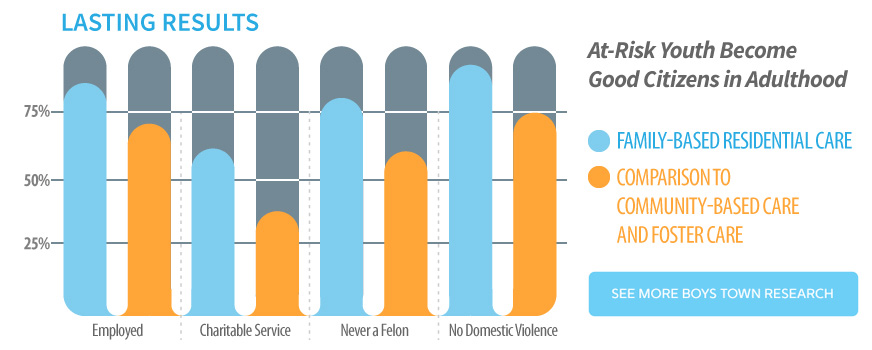Advocacy
Advocating for Juvenile Justice Reform
We could solve all of their problems the same way. But every child is different, each with his or her own unique needs, strengths and weaknesses. There will always be boys and girls with emotional and behavioral problems who need more encompassing care. Research demonstrates that high quality, family-based residential care and other evidence-based residential programs are essential components of any continuum of care for at-risk youth.*
The Results are Apparent
High quality, family-based residential care like that provided by the Teaching Family Model and the Boys Town Family Home ProgramSM has successfully helped high-needs youth, producing positive short-term and long-term outcomes for those who have been failed by community-based programs and ineffective foster care.

Fewer Negative Behaviors
Research has shown that youth in family-based residential care programs have significantly fewer problems/negative behaviors over time.
* Some examples of quality residential programs are:
- Teaching Family Model and Boys Town Family Home Program®
- Sanctuary Model
- Positive Peer Culture
- Stop Gap Model
Stay Informed
Child Welfare, Juvenile Justice and legislators are encouraged to contact:
Margaret Vacek
margaret.vacek@boystown.org
531-355-1110
 877-632-9123
877-632-9123